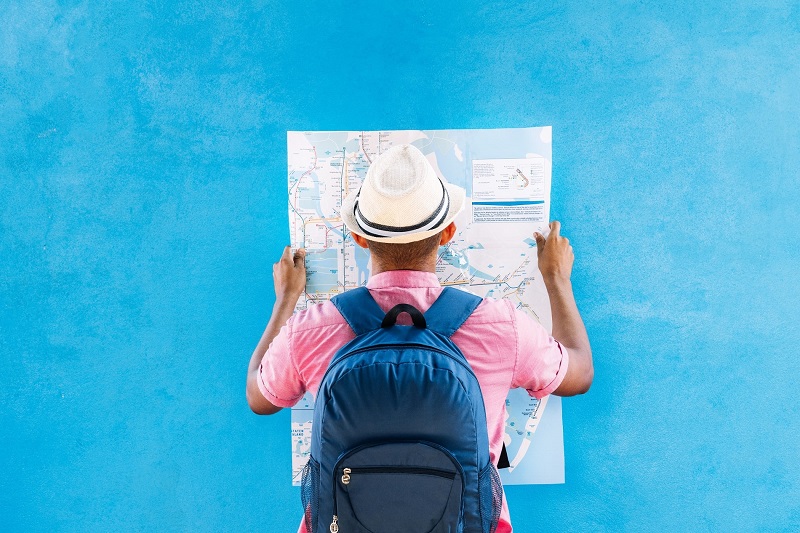Traveling during peak season can be both exhilarating and daunting. The streets are bustling, the landmarks are crowded, and the vibes are high. Yet, there’s a thin line between a dream vacation and a travel nightmare.
To ensure your trip leans more towards the former, it’s crucial to know the pitfalls to avoid. From overpriced accommodations to packed tourist spots, navigating the peak season requires a bit of savvy. Let’s dive into what not to do to make the most of your travels during these busy times.
Not Planning Ahead
Traveling during peak season is an adventure filled with excitement and the promise of unforgettable memories. However, the thrill can quickly turn into frustration for those who skip one crucial step: planning ahead. Amid the allure of bustling markets and stunning sunsets lies the reality of overbooked flights, skyrocketing hotel prices, and sold-out attractions. It’s these challenges that make meticulous planning not just beneficial, but essential.
Without prior arrangements, travelers might find themselves in less-than-ideal situations, such as paying exorbitant rates for last-minute accommodations or settling for sights that weren’t on their must-see list. Peak season means that demand outweighs supply in many popular destinations. Here are some striking examples highlighting the importance of booking in advance:
| Aspect | Peak Season | Off-Peak Season |
|---|---|---|
| Hotel Prices | High | More Affordable |
| Flight Availability | Limited | More Options |
| Major Attraction Lines | Long | Shorter |
These comparisons underline the tangible benefits of early planning. Securing flights and accommodations months in advance can lead to significant savings and more choices. Similarly, tickets for attractions, tours, and experiences should be booked early to avoid the disappointment of missing out on a dream activity.
Another aspect often overlooked is transportation. In peak season, local transport can become overwhelmed, leading to long wait times for taxis, buses, or trains. Exploring alternative transportation methods or even booking certain routes in advance can save a considerable amount of time and stress.
Researching local festivals, holidays, and events prior to travel is also crucial. These events can affect the availability of accommodations and transport and also offer unique cultural experiences that shouldn’t be missed. However, they might also mean more crowds and higher prices, making early planning and booking even more critical.
By not planning ahead, travelers risk more than just inconvenience. They miss the opportunity to fully immerse themselves in the culture and beauty of their chosen destination, stuck instead navigating preventable challenges. Advice from travel experts, online forums, and official tourism websites can provide valuable insights into the best times to book and hidden gems that require advance tickets.
Ignoring Peak Season Prices

When travelers set their sights on popular destinations during peak season, they often overlook one critical aspect: the surge in prices. This oversight can significantly impact their budget and overall experience. Understanding and preparing for peak season prices is essential, but unfortunately, many people underestimate or ignore this factor altogether.
Peak season brings with it a steep increase in the cost of accommodations, flights, and even local amenities. It’s not just about the higher price tags; it’s also about the reduced availability of affordable options. For instance, hotel rooms that are reasonably priced during off-peak periods can double or triple in cost during high demand times. Similarly, flights to popular areas can see a significant hike in prices due to the increased number of travelers flocking to the same destination.
Here’s a glance at how prices can escalate during peak travel times:
| Item | Off-Peak Price ($) | Peak Season Price ($) |
|---|---|---|
| Hotel Room | 100 | 250 |
| Flight | 200 | 450 |
| Local Tours | 50 | 80 |
| Car Rentals | 30 per day | 60 per day |
Moreover, the allure of peak season travel not only puts a strain on one’s wallet but also limits their ability to fully engage with the destination. Overlooking peak season prices means less budget for unique experiences, dining, or even souvenirs. The consequences of not factoring in these price increases can lead to a trimmed itinerary or, worse, overspending.
Savvy travelers often mitigate these challenges by booking well in advance. This strategy can lock in prices before they skyrocket, but it requires forethought and flexibility. Another approach is to scour for deals and promotions specifically aimed at early birds. These can significantly offset the cost hikes that accompany peak seasons.
Aside from early booking, exploring alternative destinations that offer similar experiences at a lower cost or visiting slightly before or after the peak season can be beneficial. These times, often referred to as shoulder seasons, offer a sweet spot of still favorable weather, fewer tourists, and more reasonable prices.
Visiting Tourist Hotspots at Peak Times

During peak travel seasons, renowned tourist destinations become magnets for travelers from around the globe. The allure of iconic landscapes, historical sites, and once-in-a-lifetime experiences draws crowds in numbers far exceeding the capacity of many attractions. While the desire to witness these famous spots is understandable, visiting tourist hotspots at peak times can significantly diminish the quality of one’s travel experience.
One of the most glaring issues with crowded destinations is the sheer amount of time spent waiting in lines. From the moment they arrive, travelers often find themselves caught in seemingly endless queues. Whether it’s for entering a site, buying tickets, or simply trying to take a memorable photo, the waiting time can add up to hours lost that could have been spent exploring.
Moreover, the experience of being in a crowded space can detract from the personal connection many seek with the places they visit. Historical and natural sites lose much of their wonder and appeal when they’re surrounded by throngs of people. The peace and tranquility that contribute to the unique atmosphere of such places are often overshadowed by the hustle and bustle of peak tourist season.
To provide a clearer picture, here’s a comparison of waiting times and visitor numbers for some renowned destinations during off-peak and peak seasons:
| Destination | Off-Peak Waiting Time | Peak Season Waiting Time | Off-Peak Visitor Numbers | Peak Season Visitor Numbers |
|---|---|---|---|---|
| The Louvre | 15-30 minutes | Up to 3 hours | 5,000/day | 15,000/day |
| Grand Canyon | Minimal | Up to 2 hours | 1,000/day | 5,000/day |
| Vatican Museums | 30-45 minutes | Up to 4 hours | 4,000/day | 20,000/day |
These figures highlight the stark contrast in visitor experience between seasons. The data doesn’t just show the increase in waiting times but also underscores how crowdedness can affect one’s interaction with the site itself.
Disregarding Reservation Cancellations or Changes

In the midst of planning a peak season getaway, many travelers focus on scoring the best deals for flights and accommodations and overlook the importance of staying vigilant about potential cancellations or changes. This oversight can lead to stressful situations, especially when they’re far from home.
Airlines, hotels, and even tour operators often adjust their schedules during high-demand periods to accommodate the surge in travelers. These adaptations are sometimes made at the last minute, catching unprepared tourists off guard. It’s crucial for travelers to regularly check their email or the booking platforms they used for any notifications regarding changes to their plans. Ignoring these updates can result in missed flights, lost reservations, or additional fees that were easily avoidable with a bit of diligence.
Moreover, many travelers don’t consider the flexibility of their bookings. During peak travel seasons, the likelihood of needing to make adjustments is higher due to a variety of unforeseeable circumstances, including weather disruptions, health issues, or simply changing one’s mind about an itinerary. Opting for flexible booking options, even if they’re a bit pricier, provides peace of mind. It allows travelers the freedom to make last-minute changes without incurring hefty penalties.
The benefits of flexible booking options include:
- Free cancellation within a specified period.
- Easy rescheduling to a different date or time.
- Refundable bookings that ensure you’re not out of pocket if plans change.
In addition to adjusting bookings, travelers must also be aware of the increased risk of overbookings during peak periods. Airlines and hotels often overbook to compensate for no-shows. While this is a common practice, it’s more prevalent during busy seasons and can result in travelers being bumped from flights or losing hotel reservations. To mitigate this risk, it’s advised to:
- Check-in online as early as possible.
- Confirm reservations directly with the service provider a few days before arrival.
- Stay informed about your rights as a consumer in case of overbooking.
By taking these precautions, travelers can ensure they remain one step ahead, avoiding the unnecessary stress that comes with unexpected changes to their travel plans. Furthermore, staying informed and choosing flexible options when available can turn potential disruptions into minor hiccups, keeping the overall travel experience positive and enjoyable.
Overpacking for the Peak Season
Traveling during peak season brings its own set of challenges, and overpacking can significantly add to the stress. While it’s tempting to pack for every possible scenario, especially when facing unpredictable weather or a variety of activities, this habit often leads to cumbersome luggage and additional fees.
Airlines typically have strict baggage allowances, and during peak seasons, they’re more likely to enforce these rules rigorously due to the increased volume of travelers. Exceeding weight limits can result in hefty charges, quickly turning a well-budgeted trip into a costly endeavor. Moreover, lugging around heavy bags can detract from the overall travel experience, making it harder to navigate crowded airports, transfer points, and destinations.
To combat overpacking, travelers should consider the following tips:
- Plan outfits carefully: By selecting versatile pieces that can mix and match, one can reduce the number of items needed. Consider the activities planned and pack accordingly, remembering that laundry facilities may be available at the destination.
- Check the weather forecast: This helps in packing appropriate clothing and avoiding the “just in case” items that often go unused.
- Invest in travel-sized containers: For toiletries, smaller containers not only save space but also meet airline regulations for carry-ons. Many products are available in travel sizes, which can significantly lighten the load.
- Use packing organizers: Compression bags, packing cubes, and folders not only help in organizing the luggage but also in compressing clothes to save space.
It’s also essential to consider the return journey when packing for the trip. Souvenirs and purchases made during the trip will require space in the luggage. Therefore, leaving a bit of extra room or even bringing an additional, foldable bag can be a lifesaver when it’s time to head home.
| Packing Error | Consequence |
|---|---|
| Exceeding Baggage Allowance | Additional Fees |
| Bringing “Just in Case” Items | Unused Clutter |
| Forgetting Space for Souvenirs | Overcrowded Luggage |
Travel experts often recommend making a packing list as a strategic move to avoid overpacking. This list should include every item deemed essential, and once everything is laid out, a second evaluation can help remove non-essential items. This deliberate and mindful approach to packing can not only save time and money but also enhance the traveling experience by focusing on the essentials.
Conclusion
Traveling during peak season doesn’t have to be a headache. By steering clear of overpacking, travelers can dodge unnecessary stress and costs, making their journey smoother and more enjoyable. Remember, it’s not about cramming everything into your suitcase but choosing what you truly need. With a well-thought-out packing list and a focus on essentials, you’re set to embark on your adventure without the extra baggage, literally and figuratively. So pack smart, embrace the experience, and make the most of your travels, no matter the season.










0 Comments